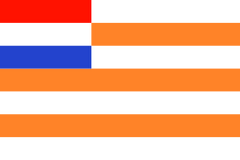FEWS Southern Africa Food Security Outlook Oct 2007 - Mar 2008
This report covers the period from 9/13/2007 to 10/30/2007
The FEWS NET Outlook for Southern Africa incorporates the findings from six country outlooks for the period October 2007 to March 2008. This outlook provides a basis for regional and global resource allocation and contingency planning, as well as in-country planning. This report summarizes the results of this process for Southern Africa, highlighting what FEWS NET believes are the major threats to food security in the period October 2007 to March 2008.
The most likely regional food security scenario between October 2007 and March 2008 is a continued decline in food security conditions in areas now facing moderate to high levels of food insecurity as noted above. The exception is Zimbabwe, where the situation as at end of September is expected to improve marginally between October and December, as the number of areas with high levels of food insecurity declines as a result of improvements in emergency interventions. The situation will however deteriorate again between January and March, during which the hunger season peaks, and more districts become moderately food insecure. This analysis takes into account the regional seasonal forecast which in general indicates a normal to above normal rainfall season for the period of the outlook.
The worst case scenario would arise if the assumptions under the most likely scenario do not hold, and instead, conditions deteriorate leading to extremely high levels of food insecurity, particularly in Zimbabwe and southern and central Mozambique, countries which face moderate to extreme food insecurity even in the most likely scenario. The situation would be further exacerbated if rainfall performance is poor with a delayed start and/or lengthy dry spells. Extreme levels of food insecurity will arise in parts southern Mozambique in the period October to December; while in Zimbabwe, most extreme levels would occur in the January to March 2008 period.
In Lesotho and Swaziland, where widespread food insecurity has been assessed, the situation is likely to be mitigated through on-going emergency interventions targeted at vulnerable households. However adequate assistance will depend on improvements in the responses to appeals for resources by governments and humanitarian agencies. Currently the UN appeals for emergency assistance are 18 percent funded in Swaziland, and 49 percent in Lesotho.
Subscribe to:
Post Comments (Atom)







No comments:
Post a Comment